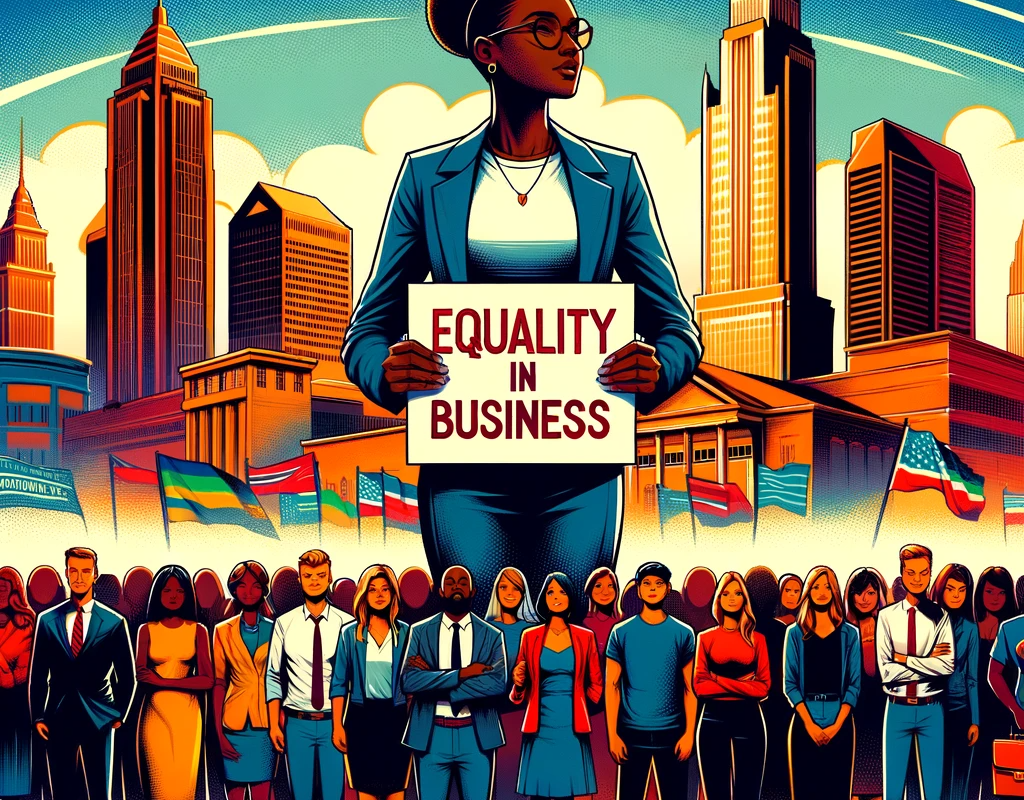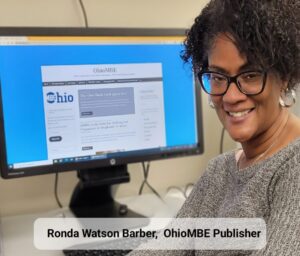
By Ronda Watson Barber
OhioMBE Publisher
As we approach celebrations in remembrance for Rev. Dr. Martin Luther King Jr., a stark contradiction looms over the celebrations in Columbus, Ohio. Notably, some of the same elected officials who voted to permit non-citizens to vie for government contracts and certification will be in the forefront, publicly lauding Dr. King’s lifelong struggle for equity and justice. Dr. King once said, “Injustice anywhere is a threat to justice everywhere.” This quote resonates deeply in the context of our current situation.
These celebrations will be joined by members of the Columbus City School (CCS) officials and elected board, seemingly honoring Rev. King’s quest for equity. However, beneath the surface of these commemorations lies a troubling reality. Despite CCS’s 20 percent purchasing goal to spend with Local Economically Disadvantaged Enterprises (LEDE), it’s been observed that white men have predominantly benefited from this program, especially in Ohio’s largest public school district, which is predominantly Black.
Certification programs were established as a remedy to past racial discrimination. Unfortunately, the Black people who fought for these programs have been marginalized. White households overwhelmingly benefit from the City of Columbus and Columbus City Schools certification programs, overshadowing the very communities these initiatives were meant to uplift.
This scenario presents a disconcerting picture: while the district’s student demographic is largely Black, the benefits of programs intended to support disadvantaged businesses seem to be misaligned. The troubling part is not just the misdirection of resources but also the implied disrespect towards Black businesses. These businesses are expected to contribute to the tax base, which in turn supports these institutions, yet their potential for equitable participation in economic opportunities seems disregarded. It’s taxation without participation.
Furthermore, the actions of some Black politicians in the region, who appear to act against the interests of Black businesses, add to the complexity of this issue. Their presence in Black spaces becomes a matter of contention, raising questions about the sincerity of their commitment to the community they represent.
In light of these observations, it becomes crucial for the community to engage actively with these officials. Encountering members of the Columbus City School Board or the Columbus Board of Education should be seen as an opportunity to ask pressing questions: Why isn’t there a more intentional effort to support Black businesses? Why do their votes seem to favor political donors over the interests of the Black community?ML
As we celebrate the legacy of Rev. Dr. Martin Luther King Jr., let us not forget the essence of his message: the pursuit of equality and justice. In honoring his memory, it is incumbent upon us to challenge the status quo and seek answers and actions that align with his vision. The disparity in the allocation of resources and opportunities is not just a matter of economics; it’s a matter of principle, fairness, and the continuing struggle for the equality that Dr. King so passionately fought for.
just my thoughts…rwb
Discover more from OhioMBE
Subscribe to get the latest posts sent to your email.
